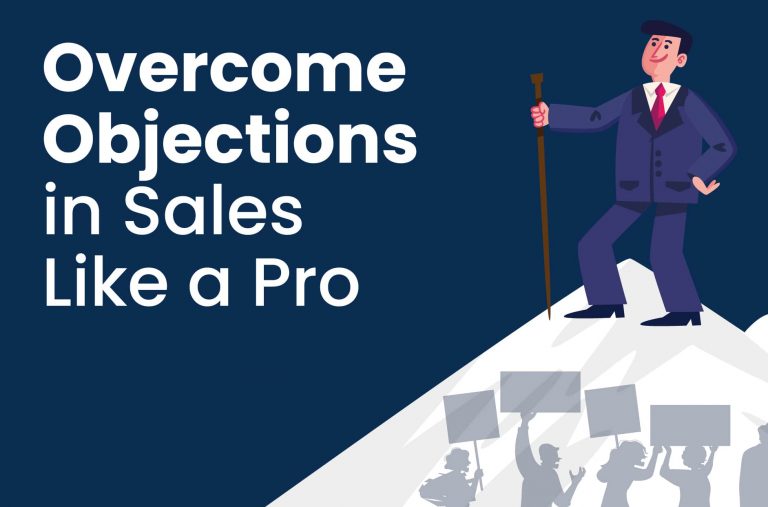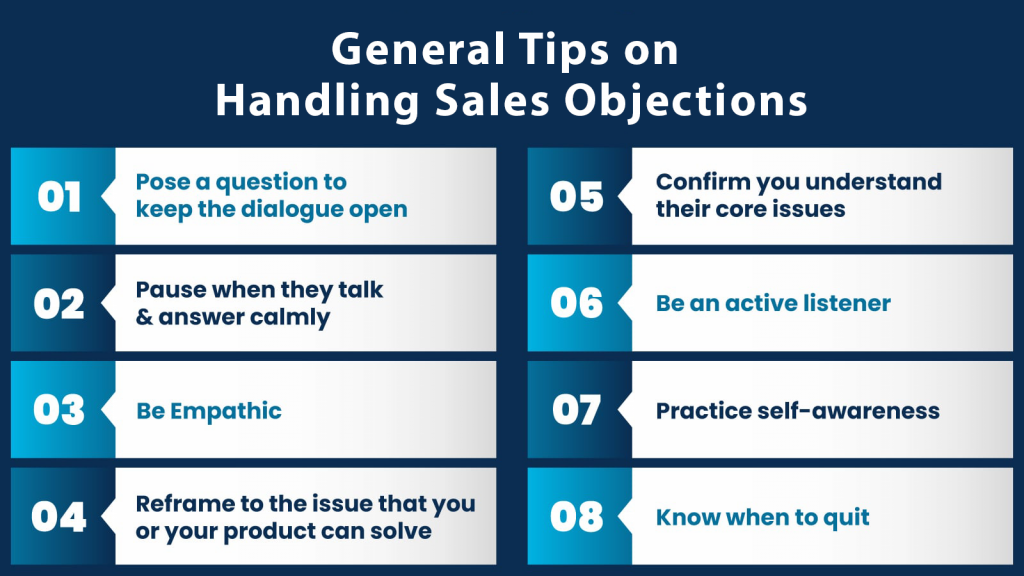To be successful in sales, it is essential to learn how to overcome objections in sales. To do this, you need to understand what a sales objection is, why it occurs and how to handle it.
What is a sales objection? A sales objection is any concern stopping someone from buying from you or your company. If sales objections did not exist, these potential clients would already have your products or use your services.
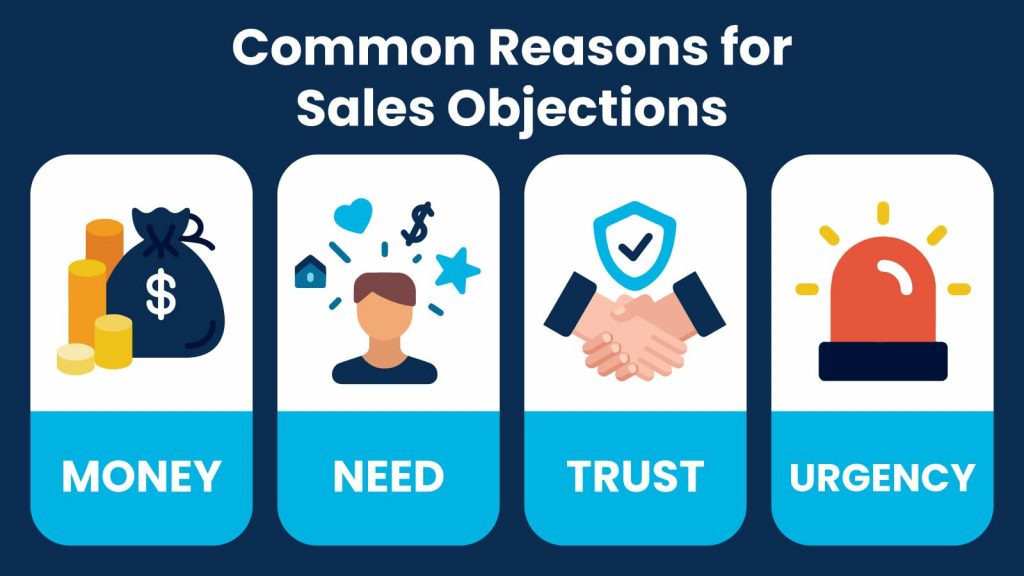
Why do sales objections occur? There are many reasons people have sales objections. However, the most common reasons behind different sales objections are money, need, trust, and urgency. They may not have the money for your product or service, it is not a need for them, or it is not needed today, or they may not trust the brand.
How should you respond to sales objections? Overall, this is a case-by-case situation. However, you mustn’t argue with the customer, as this will not get you any sales. You need to know yourself as a salesperson and the product and then address their specific concerns with the high level of knowledge you have.
This will involve using active listening skills with your customer, asking questions to determine the real issue, and using problem-solving skills to find a solution.
When Prospects Say They Have No Time
When looking at how to overcome objections in sales, one of the more common objections is that the prospect does not have time for a sales call or appointment. This is a common reason, and it is imperative to have ways around this objection.
If you go in knowing this might be the top objection to getting around, you can be prepared. Let’s look at a few ways to get around this objection.
Change it up. Most sales calls start the same way, quickly identifying the call as a sales call, allowing the intended receiver to get off the phone immediately. You may need to identify your company and your name and then follow with a greeting. But if you alter the greeting slightly, you might get a different response. Instead of saying how are you, say how are you doing, how have you been or how is it going. A slight change may get you in the door.
Respond to their statement. Use empathy. Show that you understand how they feel. Tell them you know they are busy and ask if you can set an appointment. If the answer is still no, inquire why. Ask if the timing is the only problem. If it is not, you can respond to the real issue that stands in your way.
No Budget for Your Products or Services
Another common obstacle is that your prospective customer does not have a budget to purchase your product or service. Money can be tight for individuals and businesses for different reasons. Sometimes, they really do not have the budget for anything. However, they may have a budget but believe your product is not worth it.
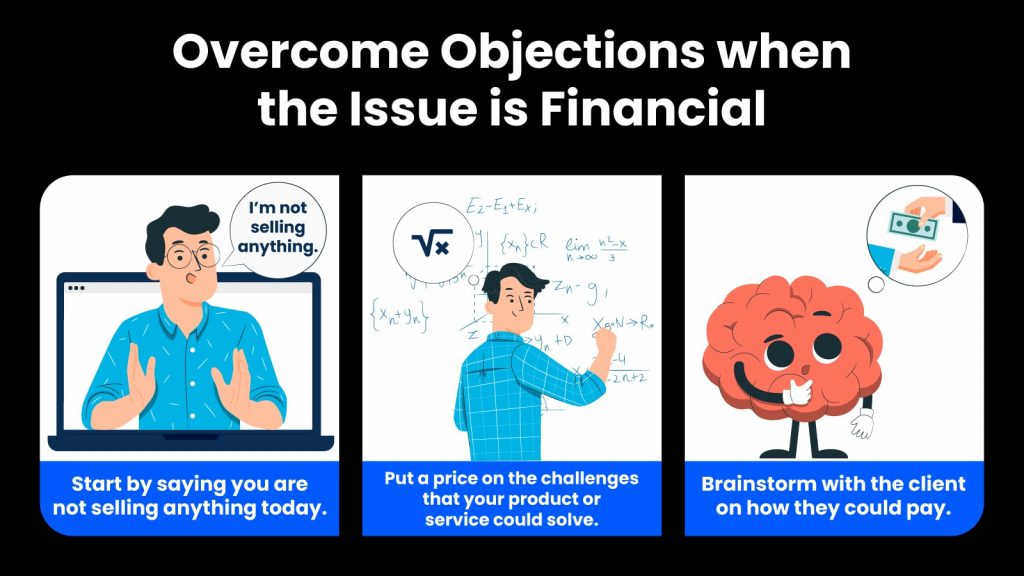
There are many ways you can overcome objections in sales when the listed issue is financial. Here are a few ideas for you to try.
- Start by saying you are not selling anything today. Let the potential customer know that you are seeing if they (as an individual or a company) are a good fit for your product or service.
- Put a price on the challenges that your product or service could solve. For instance, if you were selling an internet marketing service for social media accounts, you can inquire if they have a social media manager. Find out how much traction their social media accounts have and how not having successful campaigns affects their bottom line. This will allow you to segway into how your service is affordable and would fix the problem that is costing them more money.
- If money is a problem, brainstorm with the client on how they could pay. This could be as simple as finding out what they can afford and seeing how you can work with them to make it happen.
They Have No Trust in Your Product or Service
Another common issue is that the businesses and people you are marketing do not trust your product or service. When trying to overcome objections in sales based on trust or lack thereof, you will need to get the customer to see your company in a different light.
A common problem is that the person you sell to is unfamiliar with your brand. Even if your product or service is excellent, they have no reason to trust you. All companies have dealt with this issue at one time, and it is not difficult to get around it.
Tell them you understand and that previous customers have had the same issues in the beginning. Ask them how you can help? You can explain the value of your product and how it will help them and their business. This bridges the gap between not trusting you and politely educating them.
If they do not know your company, they will have questions. Another way to overcome the lack of trust is by showing a high confidence level and knowledge. If you are knowledgeable and can answer their questions, and you are confident about your product, they will open up to trusting you or your company.
Show value. Everyone wants to get something of value.
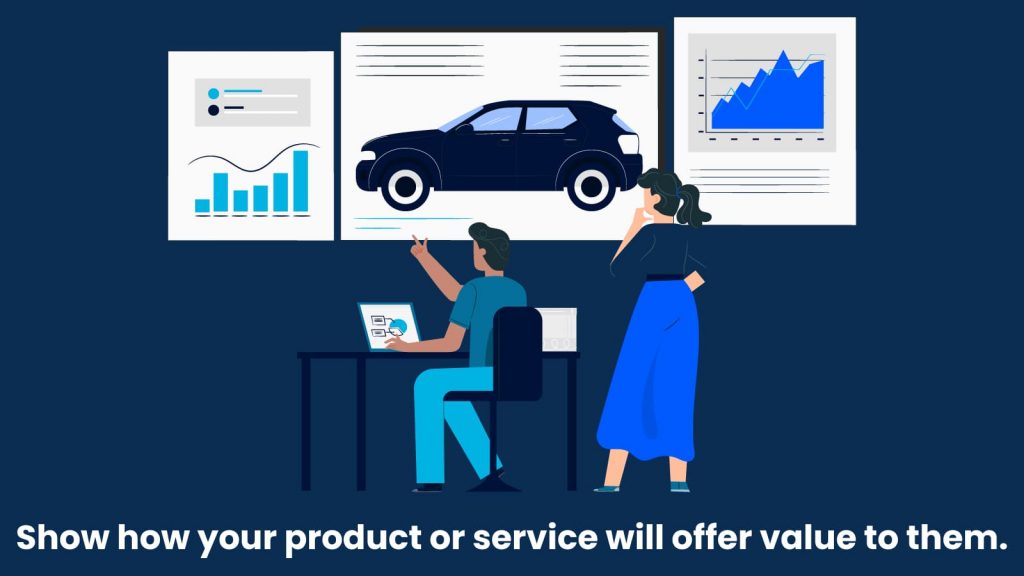
Show how your product or service will offer value to them. Even if they have never heard of you, getting a deal on something valuable will interest them.
They Don’t Need Your Product or Service
A common objection is that the customer does not want or need your products or services. Often, you can overcome objections in sales for this reasoning by understanding that they do not know that they need your product or service.
Before reaching out to a lead, you likely researched them and why their business would benefit from your product or service. Use this information now. Start by asking a direct question like, “Your company does X, and Y, correct?” When they answer in the affirmative, you can continue showing how your product or service will help. Use stats and comparisons of other companies to create a picture.
Another option is to point out that you think they are unaware of the benefits this product or service offers them. Go on to explain just how much they need your product and how it will fix a problem or make their business run smoother.
Finally, you should point out how easy your product is to use (many people are not as technically savvy as you) or how you are willing to work with them to make the product or service work. Sometimes, people are interested in a product or service but believe they will not be able to master it or their current setup will not allow for integration.
They Want the Info so They Can “Get Back to You”
What do you do when trying to overcome objections in sales and the objection is just a brush-off? Sometimes, people do not list a specific issue at all. Many say they want to look over some information you can provide and come to a decision later.
Typically, this is their nice and friendly way of saying they are not interested. One way to respond is that you would love to send them some information, but you would like to pinpoint what they are interested in. Is there information on a specific part of the product or service they want? It is also a good idea to set an appointment for a future call after they have reviewed the information you are sending them.
You can also ask follow-up questions. What info do you want? Will I be sending this to you, or will someone else make this decision? Try to get an email for whoever will ultimately decide on your product.
What is Source Objection?
Source objection is a rarer objection that you may encounter, but it is still a possibility. Source objection means that the prospect has some objection to buying from your company or you specifically.
You should know how to overcome objections in sales, including rare situations like this one.
When the objection is with you specifically, you should deflect the attention away from you and redirect it to your company. This means you should highlight the company, its merits, and the product. Make these sales calls only about the brand or product and what it could do for the client.
The source objection could also be about the company. This is certainly a possibility for new companies that have not been around for very long. Clients may object to dealing with a company without a proven track record when buying long-term products that come with subscription packages or warranties.
There are ways to counteract this type of objection as well. For instance, you can point to the people who work in the company with years of experience in this field (especially owners and higher-ups). You can also talk about investors who believe in the company’s longevity. You want to point to anything that shows that your organization will be around for a long time.
When a Prospect Has an Objection About Your Product or Service
To overcome objections in sales, you need to consider all possibilities. Sometimes, your prospects are just not interested in the product or service itself. One major issue many people have with products and services is that they sound too complicated, and most companies lean towards simplicity.
However, this is easy enough to solve. Take the time to describe the product or service in detail. This includes features or functionality that they will be interested in. Also, highlight any help or assistance your company will provide in setting it up and learning how to properly use it. Finally, discuss any warranties and money-back guarantees that protect the customer if they do not like it or can not understand how to use it.
If they have an issue with the product due to bad press or a bad review you have received, address it directly. Everyone gets bad reviews from time to time. Address how to review was accurate at the time and how it has been rectified. Let them know that your company values feedback and incorporates it into your products and services.
Tips on Handling Sales Objections
Now that you are aware of the varying forms of objections you can run into, you understand more than ever home important it is to overcome objections in sales and that you should be ready for anything.
Here are some tips on how to handle whatever objection you come across during sales:
- When initially objected, pose a question to keep the dialogue open.
- Pause while they talk, then answer with calm authority.
- Channel empathy. Validate their words before shifting to solve their problems.
- Reframe the objection to a specific issue you or your product can solve.
- Confirm you understand their core issues throughout the conversation.
- Be an active listener. Show your prospects that you really care about what they are saying.
- Practice self-awareness. Often people fall so heavily into a script they need an authentic conversation. Keep the script in mind, but veer off occasionally, so the customer knows you are with them.
- Know when to quit. Although you can turn around many sales, you can only save some of them. Listen to the words they say and the tone they use. Know when to cut your ties and move on.
Final Thoughts on Overcoming Sales Objections
Just as there are many roadblocks to completing a sale, there are many ways to overcome objections in sales. You must be aware of the possibilities so you can be prepared to react and change the mind of your potential clients.
Not every sale will be easy, regardless of how you got the lead or how much research you did in preparation for your first contact. Sometimes you really need to work for a sale.
Go into all your sales calls and meeting with confidence. Do your homework and understand what could go wrong and how to handle each type of situation you might encounter.
Learn to step back from your basic script and have situational awareness for every client. Understand that each individual and company is different, and you must react to individual situations.
Show empathy and listening skills. Respond to the direction of the conversation, but also know how to artfully turn it back to the matter at hand.
Sure, objections will come up. But with practice and time, you will learn how to address each one appropriately and turn more rejections into clients.

